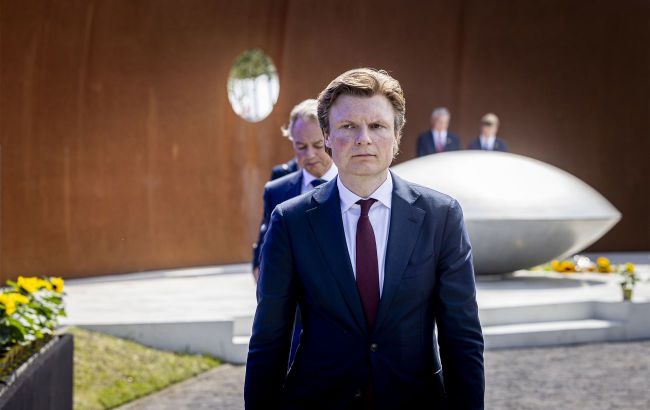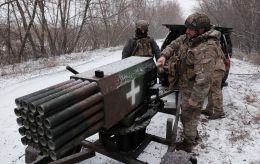Russia actively uses chemical weapons against Ukraine - Dutch intelligence
 Photo: Ruben Brekelmans (Getty Images)
Photo: Ruben Brekelmans (Getty Images)
Dutch intelligence services have gathered evidence of Russia's large-scale use of banned chemical weapons in the war against Ukraine. Russian forces drop the choking agent from drones to drive Ukrainian soldiers out of trenches and shoot them, Reuters reports, citing Dutch Defense Minister Ruben Brekelmans.
"The main conclusion is that we can confirm Russia is intensifying its use of chemical weapons," Brekelmans said in the interview.
According to the Dutch Defense Minister, this intensification is concerning because it is part of a trend that has been observed for several years: "Russia's use of chemical weapons in this war is becoming more normalized, standardized, and widespread."
In particular, Dutch intelligence data indicate that Russia is using chloropicrin - a banned poisonous warfare agent first employed by Germany during World War I.
The Head of the Dutch Military Intelligence Agency (MIVD), Peter Reesink, stated that the conclusions are based on "our own independent intelligence, so we have observed it ourselves based on our own investigations."
According to Brekelmans, at least three Ukrainian deaths are linked to the use of chemical weapons, and more than 2,500 people wounded on the battlefield have reported symptoms associated with chemical weapons use to Ukrainian health authorities.
The Dutch Defense Minister added that Russia's broader use of chemical weapons poses a threat not only to Ukraine but also to other countries.
"We must further increase the pressure. This means looking at more sanctions and specifically not allowing them (Russia - ed.) to participate in international bodies like the Executive Council of the OPCW (the Organisation for the Prohibition of Chemical Weapons - ed.)," Brekelmans said.
Large-scale program
Russia is a member of the OPCW and claims to have destroyed its declared stockpiles of chemical weapons.
However, Dutch military and intelligence services working with foreign partners have uncovered concrete evidence of the ramp-up in Russia's chemical weapons production.
This includes enhanced research capabilities and the recruitment of scientists to develop chemical weapons, the Dutch Defense Minister said. He added that Russian officials have given soldiers instructions on how to use poisonous warfare agents.
"This isn't just some ad-hoc tinkering at the frontline; it is truly part of a large-scale program. And that is, of course, also concerning because if we don't clarify and publicize what Russia is doing, it's highly likely these trends will continue," Reesink said.
The Dutch Defense Minister called the use of chemical weapons by Russian armed forces "almost standing operating procedure."
"We specifically linked the use of chloropicrin to improvised munitions, such as filled light bulbs and empty bottles that are hung from a drone. When it comes to teargas, we see that they are also misusing and converting existing munitions to act as the carrier for the gas," the Dutch high-ranking official added.
Chloropicrin is listed as a banned choking agent by OPCW. It was created to implement and monitor compliance with the 1997 Chemical Weapons Convention (CWC).
This chemical substance can cause severe irritation to the skin, eyes, and respiratory tract. If ingested, it can cause burns in the mouth and stomach, nausea and vomiting, as well as difficulty breathing or shortness of breath.
Sanctions against Moscow
The United States first accused Russia of using chloropicrin, a chemical compound more toxic than riot control agents, in May last year.
Ukraine reports thousands of instances of Russia's use of chemical weapons.
The Organization for the Prohibition of Chemical Weapons (OPCW), an agency headquartered in The Hague that unites 193 member states, stated last year that the initial accusations made by Ukraine and Russia against each other were "insufficiently substantiated."
The strengthening of sanctions could occur jointly with the European Commission, which has proposed adding 15 new legal entities and individuals to its sanctions system, in particular for the use of chemical weapons in Ukraine.

